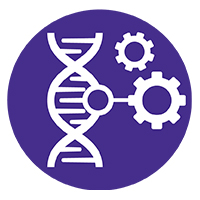Back
Advances in Therapeutic Development Across Modalities
Session: Symposium: Innovation Based on Traditional Approaches
Preclinical Discovery and Development Strategies Developing Heterobifunctional Targeted Protein Degraders
Wednesday, April 26, 2023
10:00 AM – 10:30 AM ET
Location: Salon D, 5th Floor

Steven W. Louie, M.S. (he/him/his)
Sr. Principal Scientist
Novartis
Cambridge, United States
Speaker(s)
Targeted protein degraders (TPDs) or proteolysis-targeting chimera (PROTAC) molecules have been in research development for over 20 years. Recent transition of this newer therapeutic modality from academia to the clinic has generated a lot of excitement and momentum in this field. The ability of TPDs to recruit the cell's ubiquitin-proteosome system to degrade proteins of interest that were formerly identified as "undruggable" targets has highlighted the therapeutic potential of this modality. Undruggable targets include transcription factors, protein targets with mutations or shallow binding pockets, or any target having poor affinity or access by traditional small molecules. This 30-minute presentation will provide a brief overview and introduction on the mechanism of action by heterobifunctional protein degraders; followed by the preclinical ADME challenges and potential strategies to overcoming these challenges. Current orally bioavailable molecules in clinical Phase I and Phase II will be highlighted on their current successes and how these successes may apply to current discovery and development molecules.
Learning Objectives:
- Identify the preclinical in vitro and in vivo challenges between traditional small molecule and protein degrader development.
- Understand the current state-of-the-art strategies in developing heterobifunctional targeted protein degraders
- Apply these in vitro and in vivo strategies to their respectively drug discovery and development of targeted protein degraders.

